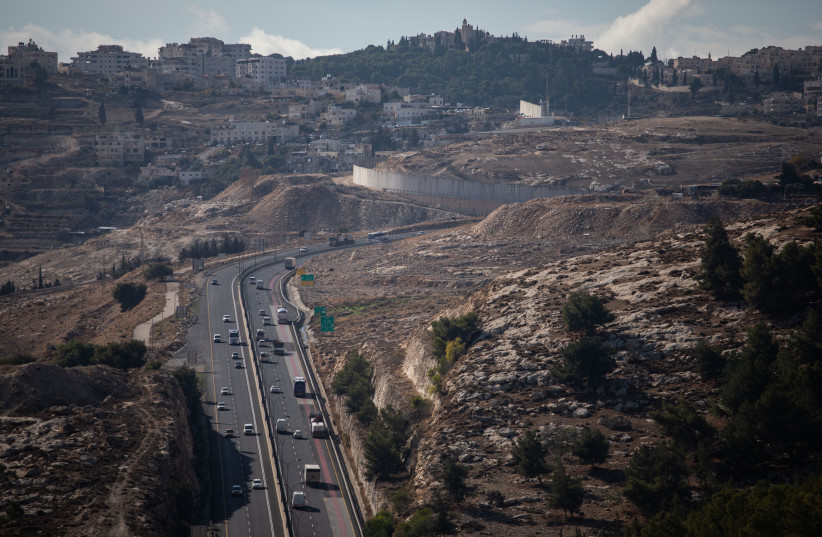Israel has advanced plans for 2,600 Jewish east Jerusalem homes, many near the Har Homa neighborhood, but has delayed the advancement of the West Bank E1 project in Ma’aleh Adumim.
The east Jerusalem plans include 1,200 homes for a new neighborhood called “lower aqueduct,” which would be located between the Har Homa and Givat HaMatos neighborhoods.
The Jerusalem Municipality said that “three plans were deposited. One on the slopes of Ramat Rachel, in the direction of the road descending to Har Homa, which includes 1,200 housing units; and another 1,400 housing units in two plans for French Hill. All plans are initiated by the Israel Land Authority.”
The left-wing group Peace Now said the number of housing units was 3,557, of which 1,465 were for the lower aqueduct project near Har Homa.
The international community and the Palestinians have harshly criticized Israel in the past over both neighborhoods. They believe these neighborhoods make territorial contiguity between Bethlehem and Palestinian neighborhoods of Jerusalem impossible, thereby rendering a future Palestinian state unviable.

A new neighborhood in that area would further cement Israel’s hold on the indivisibility of Jerusalem.
The Jerusalem Municipality’s local committee for planning and construction advanced the plans on Wednesday. It now moves to the Interior Ministry’s District Planning Committee for Jerusalem.
Last year the same local Jerusalem municipal committee advanced a plan for 9,000 new apartment units in the new east Jerusalem Jewish neighborhood of Atarot, which would have been built on the site of the former Kalandia airport.
The Interior Ministry’s District Planning Committee, however, put the project on hold pending an environmental assessment. That same committee will now evaluate the plans for the new lower aqueduct neighborhood.
Peace Now called on “coalition parties that support the possibility of two states for two peoples” to do everything possible “so that these plans are not promoted and do not reach a discussion in the District Committee.”
It added that “as in the case of the Atarot plan, right-wing elements in the government are taking advantage of the lack of coalition agreement on the issue of settlements to advance far-reaching plans that post facts on the ground that undermine the possibility of peace.”
Separately, the Civil Administration informed Peace Now that it had canceled a hearing on a project to build 3,500 homes in an unbuilt area of Ma’aleh Adumim, known as E1.
The project has been in the planning stages for close to 30 years, and has often been frozen due to international pressure. Former prime minister Benjamin Netanyahu advanced the plan.
The Civil Administration held a number of hearings last year on objections to the plan, a necessary legal process held prior to its validation.
It informed Peace Now, however, that the objections hearing set for January 10 had been canceled, and that it would be informed when a new date is set.
The meeting was canceled, it said, because of an opinion rendered by certain experts in the Civil Administration.
Israel has long held that it has the right to build Jewish homes anywhere in the city. It has been open about its support for projects that both provide needed housing, and also help cement Jerusalem as Israel’s united capital.
The Palestinians and the international community hold that the city should be divided along the pre-1967 line, with the eastern part of the city becoming the future capital of a Palestinian state.
